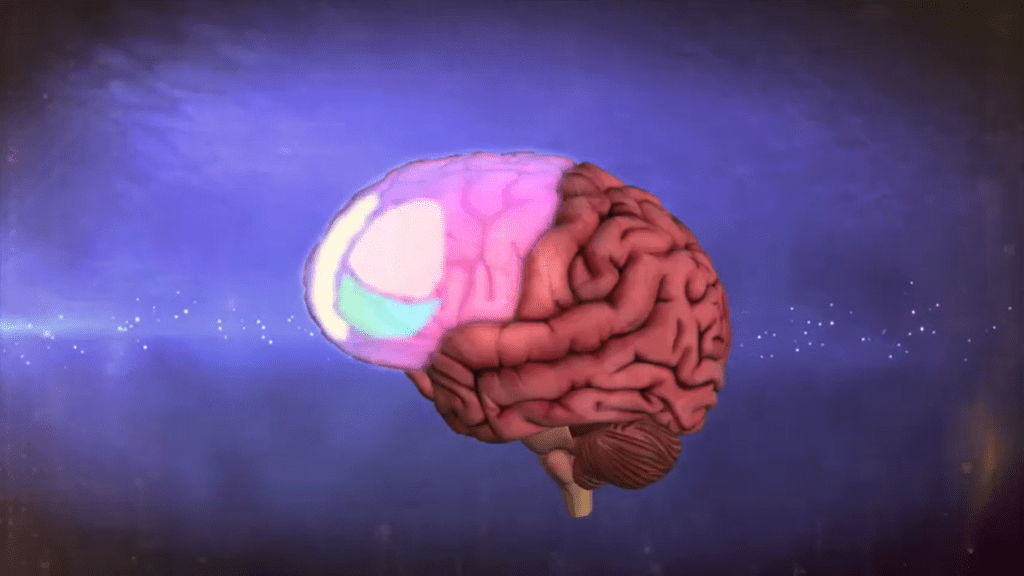As a child, Andrea Martin says she would reread passages multiple times to make sure she didn’t miss anything.
She didn’t think much about her quirk until she got to college and began experiencing more significant issues.
“I was very worried about things like security in my home,” she says. “I was checking the locks all the time. I wasn’t driving.”
By her late 20s, the problem had grown out of control, leading Martin to seek help. Eventually, she was diagnosed with obsessive compulsive disorder (OCD).
A Neurological Disorder
OCD is a neurological condition that causes people to have unwanted, intrusive, frightening or violent thoughts that they can’t get rid of. That’s the obsessive aspect of the condition.
To cope with these thoughts, people do something repetitive to alleviate the bad feelings. That’s the compulsion.
Many people mistakenly believe OCD is a compulsion to be overly neat or to be preoccupied with cleanliness. That’s a misconception that can make it difficult for people with OCD to be diagnosed, as mentioned by Jordan Cattie, PhD, a psychologist and director of the Emory OCD Program.
“If your OCD isn’t involving symmetry, arranging, checking or some of those things that come to mind, then people wait years to be diagnosed,” she says. “The average is between seven to12 years between the onset of symptoms and accessing effective treatment.”
An Underdiagnosed Condition
According to the National Institutes of Health, some two million people in the U.S. have OCD, but the condition is underdiagnosed, Cattie states.
People with OCD pay more attention to specific fear triggers and overestimate the dangers posed by a situation. That can cause problems choosing between long-term rewards and the short-term anxiety relief offered by rituals.
“Folks will notice that they have to do things in a certain way,” Cattie says. “I have to drive a certain way. I have to check this many times. I have to feel like my hands are clean before I walk away from the sink and turn it off.”
Compulsions can also be invisible. People may avoid a trigger, repeat a word in their head or replace what they perceive as a negative thought with a positive one.
Intrusion in Daily Life
For someone with OCD, the intrusive thoughts and associated anxiety interfere with daily life.
Dave Saunders knows this all too well. He started medical school but dropped out when symptoms became debilitating.
“If you really, truly have OCD, doing those things can be maddening because it’s like, I’m never clean enough, I’m never safe enough, it’s never organized enough,” Saunders says.
Martin had intrusive thoughts about bad things happening when she would drive.
“I kept having images of getting in a horrible accident and being in pain and dying on the side of the road and these kinds of things,” she says. “Sometimes it might have been about hurting someone else.”
Effective OCD Treatment
Both Martin and Saunders used a type of cognitive behavior therapy called Exposure Therapy with Response Prevention (ERP) to address their OCD.
“ERP involves approaching the feared stimulus really gradually and systematically in a doable way so that safety learning can take place in the brain,” Cattie says.
By facing their fears, people with OCD gradually break the connection between the intrusive thoughts and the action that follows them. Learning to operate without rituals helps break the cycle of OCD.
“There are some specific circuits that are connected differently or communicating differently in brains that have OCD and brains that don’t,” Cattie says.
Medications that affect serotonin levels can also help people with OCD.
A Manageable Condition
ERP therapy has proven beneficial for both Martin and Saunders, who advocate for people with the condition.
“I just don’t want anyone to feel like they have to do it alone or that there isn’t any hope because things can definitely get a lot better,” Martin says. “It’s never going to go away, but you can get to a place where you can manage it.”
For more information on the services offered at the Emory OCD Program, click below or call 404-778-7777 for additional details.
About Your Fantastic Mind
Emory University and the Emory Brain Health Center have partnered with Georgia Public Broadcasting (GPB) on a television series, “Your Fantastic Mind,” which features compelling stories on brain-related health and wellness.
“Your Fantastic Mind” began airing Season 2 in September 2020 on GPB’s statewide television network. The Emmy-winning news magazine-style show highlights patient stories and reports on cutting-edge science and clinical advances in neurology, neurosurgery, psychiatry, sleep medicine and rehabilitation medicine.
For a complete listing of Season 2 episode air dates and times, visit emoryhealthcare.org/yfm.
Season 1 of “Your Fantastic Mind” examined such topics as sleep apnea, obsessive-compulsive disorder, Alzheimer’s disease, stroke, PTSD, Huntington’s disease, migraines and video gaming disorder, which has been designated a mental health disorder by the World Health Organization.
Jaye Watson is the show’s host, writer and executive producer. She is an Emmy- and Edward R. Murrow award-winning veteran Atlanta journalist and video producer for the Emory Brain Health Center.
Emory Brain Health Center
The Emory Brain Health Center uniquely integrates neurology, neurosurgery, psychiatry and behavioral sciences, rehabilitation medicine and sleep medicine and transforms patient-centered care for brain and spinal cord conditions through research and discovery.
Bringing these specialties together allows more than 400 researchers and clinicians from different areas to collaborate to predict, prevent, treat or cure devastating diseases and disorders of the brain more rapidly. These collaborations are demonstrated in numerous centers and programs across the Brain Health Center, including the Epilepsy Center, Pituitary Center, Stroke Center, Treatment-Resistant Depression Program and Veterans Program.
Emory’s multidisciplinary approach is transforming the world’s understanding of the vast frontiers of the brain, harnessing imagination and discovery to address 21st century challenges.
Learn more about comprehensive, diagnostic and innovative treatment options at the Emory Brain Health Center.
